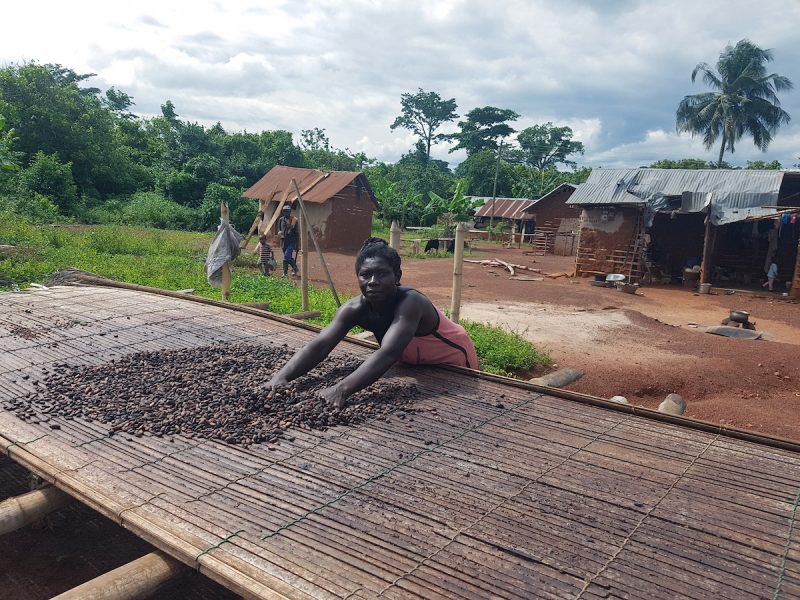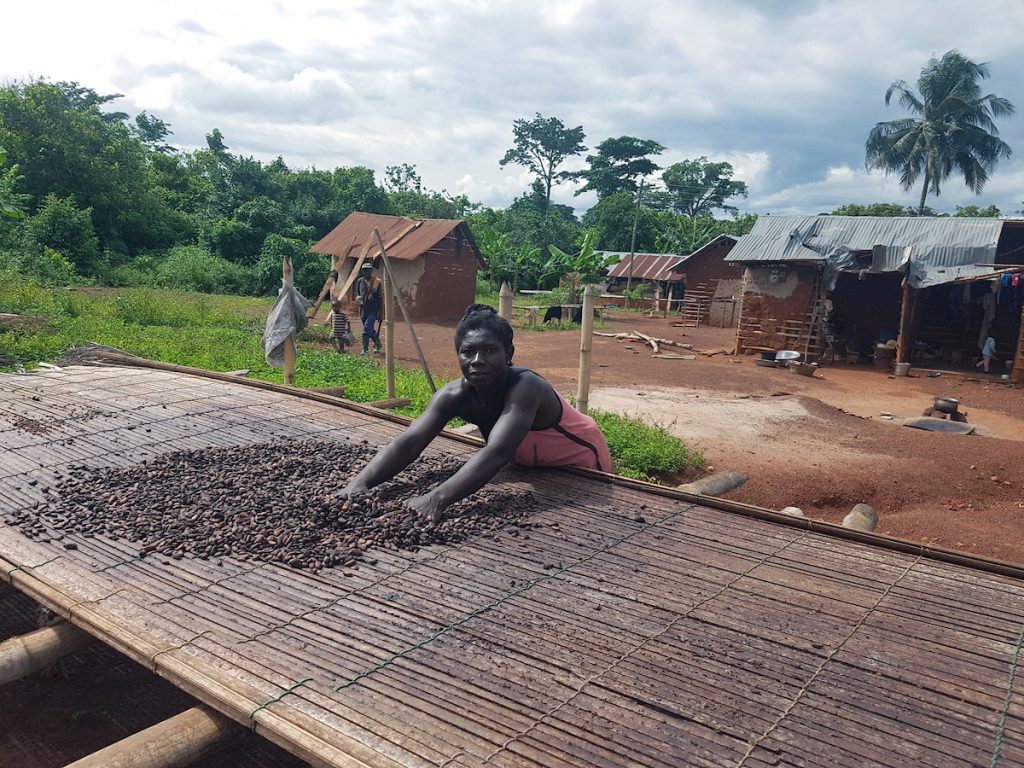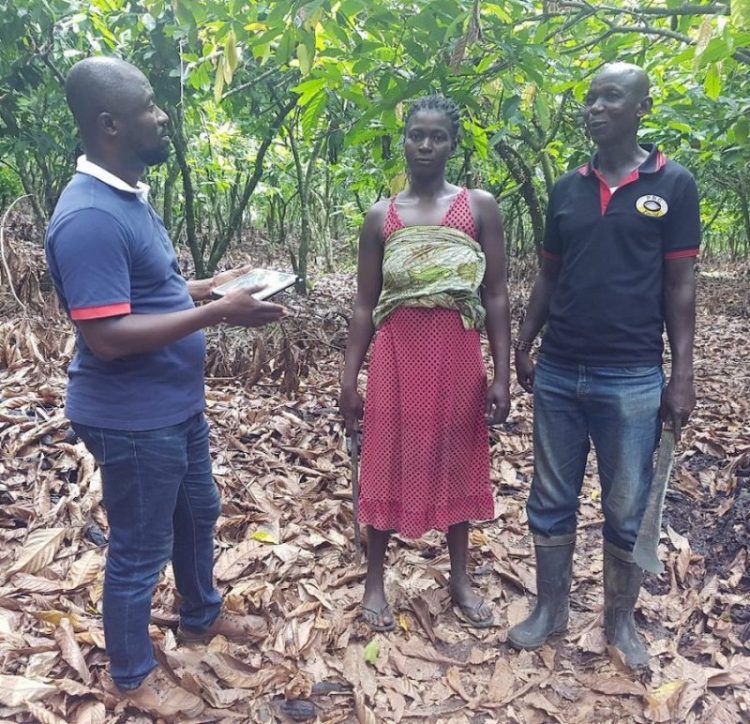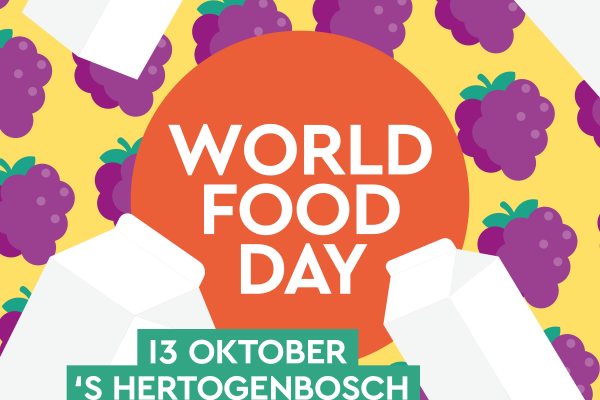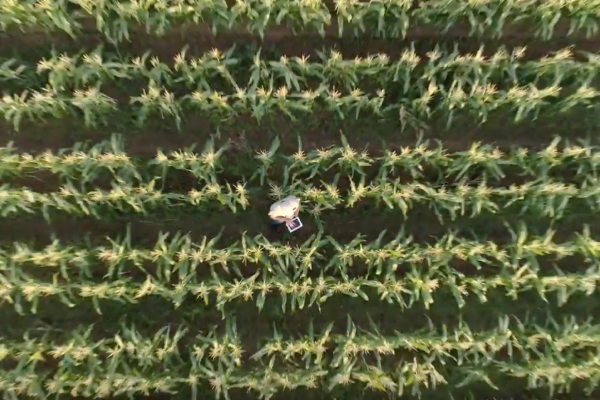SAT4Farming, an initiative to reach thousands of small-scale cocoa producers with information and services to improve their productivity and sustainability, has launched this week. It is designed to use digital technology and satellite imagery to create individual Farm Development Plans (FDPs) that guide farmers over a seven-year period.
Cocoa is the basic ingredient for chocolate, a product that has a global booming demand whilst its small-scale producers face declining yields, growing threats from pests and disease, and persistent poverty. Oddly enough, the Western basic luxury of a bar of chocolate cannot be afforded by its own producers. They are often exploited and underpaid for their crop. Ghana, the second world’s largest cocoa producer, accounts 800.000 smallholder farmers that are in need of timely training and advice.
The digital Farm Development Plans (FDPs), a specialised agronomic model for cocoa, provide a planning and monitoring tool, available over mobile devices. The tool enables farmers to map-out the future of their farms as the FDPs allows information to flow back to farmers. The role of WaterWatch and its partners is translating satellite data into information that can be incorporated into FDPs to increase yields of smallholder cocoa farms and help farmers become more resilient, sustainable and profitable. The target group consists of 240,000 Ghanaian smallholder cocoa farmers, 30% of which are women and young cocoa farmers below the age of 35.
Along Waterwatch, the SAT4Farming partners include the global non-profit the Rainforest Alliance and Grameen Foundation; global cocoa trader Touton; the University of Ghana’s Department of Agricultural Economics and Agribusiness, and the Netherlands-based Satelligence. Touton started deploying the SAT4Farming digital FDPs among its network of farmers and suppliers for Mars, Inc., known to be one of the world’s largest chocolate producers with the aim of supporting a more sustainable cocoa sector by improving smallholders’ livelihoods and protecting the environment.
The program is funded from the Geodata for Agriculture and Water (G4AW) program of the Netherlands Space Office (NSO). Click on this link to find more information about the program.
- SAT4Farm-A worker drying cocoa beans at a small farm in southern Ghana
- SAT4Farm-Field coordinator Isaac Addo (left) meets with workers, Joseph

